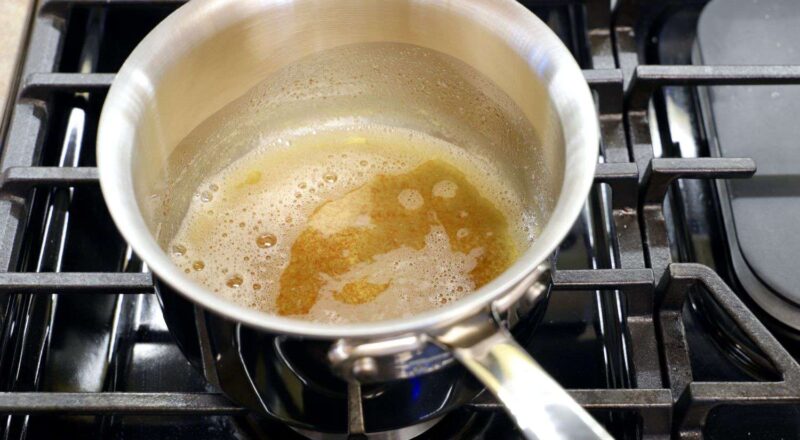Have you ever wondered what is a nonreactive saucepan and why its important in the kitchen? If you have ever tried cooking acidic dishes like tomato sauces or lemon curd, you might have noticed a metallic taste in your food. The culprit is likely the type of cookware you used. This is where understanding a nonreactive saucepan becomes crucial. In this article, well dive into what it is, how it benefits you, and which types of cookware are considered nonreactive. Lets get started!

What Does Nonreactive Mean in Cookware?
The term ‘nonreactive’ refers to cookware that doesnt chemically react to certain ingredients, especially acidic or alkaline ones. Some materials, like aluminum and cast iron, tend to react when exposed to acids like vinegar or tomatoes. This can alter the dish’s taste and even change its color. In contrast, nonreactive saucepans are designed to avoid these chemical interactions, ensuring your food retains its original flavor.
Why Do You Need a Nonreactive Saucepan?
The need for a nonreactive saucepan arises primarily when youre cooking dishes with acidic ingredients. Imagine preparing a delicate lemon curd. Now think about how unpleasant it would be if a metallic aftertaste ruined the flavor. Using nonreactive cookware prevents this issue. Additionally, it maintains the original color of your food, making your dishes not only tastier but visually appealing.
Common Uses for Nonreactive Saucepans
- Cooking tomato-based dishes
- Preparing citrus-based sauces
- Melting sugar for caramel
- Delicate custards and creams
What Materials Are Considered Nonreactive?
Not all saucepans are created equal. The material largely determines whether a saucepan is nonreactive. Here are some common materials used for nonreactive cookware:
1. Stainless Steel
Stainless steel is among the most popular choices for a nonreactive saucepan. Its durable, easy to clean, and doesnt react with acidic or alkaline foods. Many professional chefs prefer it for its versatility.
2. Enameled Cast Iron
An enameled coating on cast iron works as a barrier, making it nonreactive. This type of saucepan is excellent for slow cooking dishes that involve acidic ingredients.
3. Ceramic
Ceramic pots and pans are not only nonreactive but also aesthetically pleasing. Theyre ideal for delicate sauces but might not handle high heat as well as some other materials.
4. Glass
Although less common for saucepans, glass is an entirely nonreactive material. Its best for acidic dishes but isnt ideal for high-heat cooking.
How to Identify a Nonreactive Saucepan
Here are some tips to identify whether your cookware is nonreactive:
- Check the material. Stainless steel and enameled cookware are safe bets.
- If unsure, check the manufacturers label or instructions.
- Avoid cookware with visible wear or exposed metal, as this might increase reactivity.
Advantages of Using Nonreactive Saucepans
Using a nonreactive saucepan comes with several benefits:
- Preserves the flavor of your dishes
- Prevents discoloration of food
- Durable and safe for a wide variety of cooking methods
Tips for Caring for Your Nonreactive Saucepan
Proper care prolongs the life of your cookware. Follow these tips:
- Wash with mild detergent and a soft sponge.
- Avoid using metal scrubbers that can damage the coating.
- Dry thoroughly to prevent any residue from forming.
Must-Read Related Content
Want to Learn More?
For more in-depth resources, visit this detailed guide on saucepans.

FAQs About Nonreactive Saucepans
1. What is the main difference between reactive and nonreactive cookware?
Reactive cookware chemically reacts with acidic or alkaline ingredients, altering the taste of food, while nonreactive cookware prevents these interactions.
2. Can I cook acidic foods in a reactive saucepan?
While you can, it is not advisable as it can change the flavor and appearance of your dish. Always choose nonreactive cookware for such recipes.
3. Is stainless steel always nonreactive?
Yes, high-quality stainless steel is nonreactive and safe for most cooking needs. However, ensure it doesnt have an exposed core, such as aluminum, that could react with food.
Now that you know what is a nonreactive saucepan, youre better equipped to make an informed choice for your kitchen. With durability and versatility, these saucepans are a terrific addition to any cookware collection!
This article contains affiliate links. We may earn a commission at no extra cost to you.

